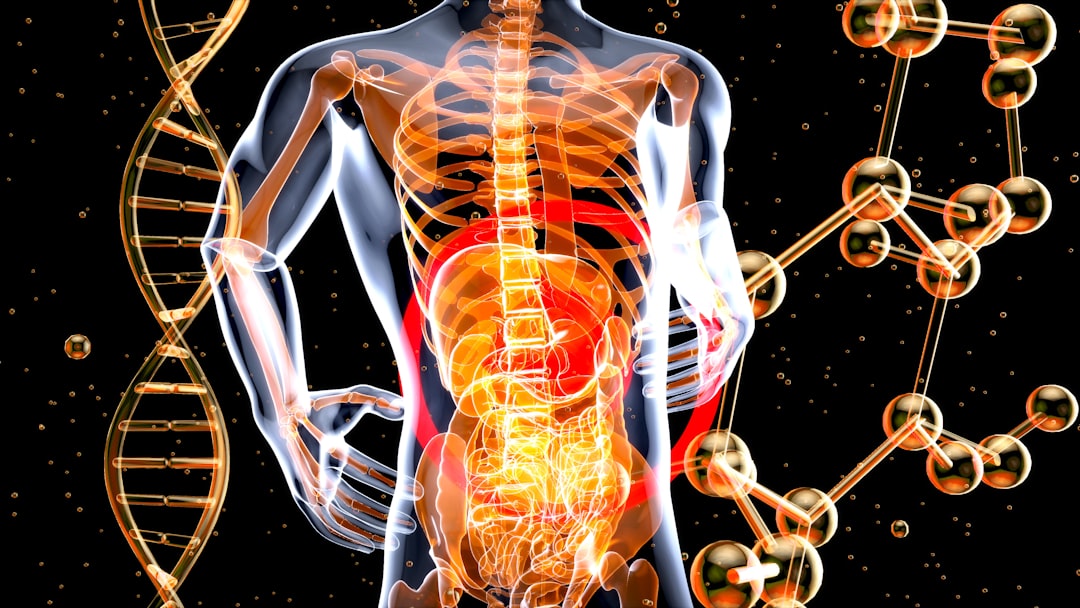
For those who know me, I'm a strong supporter of gut health. It's an important topic because your gut plays a crucial role in maintaining overall well-being. If it's not functioning properly, you may experience far-reaching effects that include digestive problems, weakened immunity, mental health issues, hormone imbalances, skin conditions, mood swings, autoimmune disorders, fatigue, migraines, and disrupted sleep.
There's hardly a health topic that should be more important, as many other issues originate from this one. To prioritize digestive health, we must consider the foods we consume, the habits we adopt, and the lifestyle choices we make.
I have previously written about this topic in some detail. Today, I would like to discuss a book titled "Restoring Your Digestive Health" by Jordan S. Rubin, which is based on his personal experience of overcoming Crohn's disease.
The book's chapters cover various subjects, including the significance of fermented foods, bone broths, and soil-based organisms (SBOs).
Rubin's journey is compelling, as he suffered from Crohn's disease and has now recovered using the principles outlined in his book. The before and after pictures of him are a testament to the effectiveness of his approach.
I’ve also observed impressive improvements in my client’s health quickly after implementing similar principles I’ve taught them. It’s why I’m passionate about the subject of helping you, the reader!
If you’re currently experiencing gut issues and related illnesses, it's important to remember the principle of "garbage in, garbage out". You can’t expect to maintain good health by consuming processed foods. Unfortunately, this is the reality for millions of people, which is why so many suffer from these health problems.
Today about 1.2 million Americans have AIDS; eight million have cancer, and twelve million battle heart disease. But perhaps the biggest problem, and one that’s rarely mentioned, is that thirty-eight million Americans are victims of digestive disorders, including Crohn’s disease, ulcerative colitis, diverticulitis, celiac disease, IBS, constipation, diarrhea, GERD, candida and food allergies.
If these staggering numbers of digestive disorders, along with the pain and discomfort that accompany them, were not enough, there is also the added burden of treatment costs. The economic impact of digestive disorders is $123 billion per year, compared to $17 billion for cancer, $58 billion for neurological disorders, and $88 billion for circulatory problems. (WestonPrice.org)
The main thrust of Rubin’s message is “love your guts and lose the medicine.” In that aspect, it provides a revolutionary wellness program for millions seeking a simple, natural lifestyle change to help ease the pain of their debilitating digestive disorders.
Rubin’s approach helps you recover from:
Crohn's disease or ulcerative colitis
Irritable bowel syndrome
Gluten or lactose intolerance
Candida (yeast) infections
Food allergies
Recurring or persistent nausea
Chronic constipation
Urinary tract infections
And many more serious ailments
You’ll also learn:
Why fermented foods and HSOs are vital to good health - and why they're missing from today's diets
How a “primitive” lifestyle offers very modern health benefits
How to find and prepare delicious meals in a primitive way
What dietary supplements can help - and which to avoid
I highly recommend this book to help you along in your health journey and overcome your ailments.
If you're so inclined, below is a summary of all 14 chapters and an appendix:
Chapter 1: The author’s personal story of recovery from Crohn’s disease and how he discovered the Guts and Glory program.
Chapter 2: An introduction to the Guts and Glory program and its four phases: Remove, Replace, Repair, and Rebalance.
Chapter 3: The first phase of the program, Remove, involves eliminating harmful foods, toxins, pathogens, and stressors from your diet and lifestyle.
Chapter 4: The second phase of the program, Replace, involves adding beneficial foods, supplements, enzymes, and probiotics to your diet.
Chapter 5: The third phase of the program, Repair, involves healing your gut lining and restoring your immune system with nutrients, herbs, and homeostatic soil organisms (HSOs).
Chapter 6: The fourth phase of the program, Rebalance, involves maintaining your digestive health and preventing relapses with a balanced diet and lifestyle.
Chapter 7: A guide to finding and preparing delicious meals the primitive way, using fermented foods, bone broths, organ meats, sprouted grains, and more.
Chapter 8: A guide to choosing the right dietary supplements for your digestive health, including vitamins, minerals, antioxidants, essential fatty acids, amino acids, and more.
Chapter 9: A guide to using natural remedies for common digestive ailments, such as acid reflux, constipation, diarrhea, gas, bloating, nausea, ulcers, and more.
Chapter 10: A guide to using natural remedies for specific digestive diseases, such as Crohn’s disease, ulcerative colitis, irritable bowel syndrome (IBS), celiac disease, candida overgrowth, food allergies, and more.
Chapter 11: A guide to using natural remedies for systemic diseases that are linked to poor digestive health, such as arthritis, asthma, diabetes, eczema, fibromyalgia, chronic fatigue syndrome (CFS), and more.
Chapter 12: A guide to using natural remedies for emotional and mental health issues that are linked to poor digestive health, such as anxiety, depression, insomnia, mood swings, ADHD (attention deficit hyperactivity disorder), autism spectrum disorder (ASD), and more.
Chapter 13: A guide to using natural remedies for children’s digestive health issues such as colic (abdominal pain), ear infections (otitis media), diaper rash (dermatitis), thrush (oral candidiasis), and more.
Chapter 14: A guide to living a healthy lifestyle that supports your digestive health with exercise tips (physical activity), sleep (rest), stress management (relaxation), hygiene (cleanliness), and spirituality (faith).
Appendix: A list of resources for further information on digestive health topics such as books (literature), websites (online), organizations (groups), practitioners (experts), products (supplements), and recipes (food).
Happy reading!





